
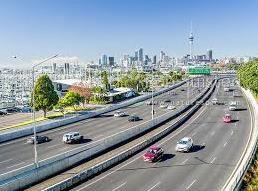

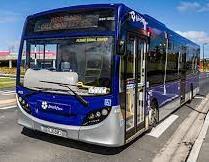 Parking Induction Overview
Parking Induction Overview
2

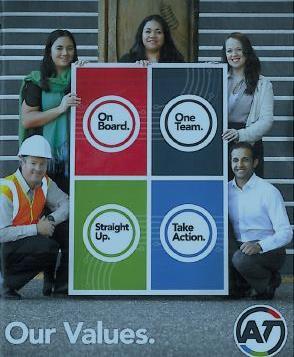


 Auckland Transport Vision
Auckland Transport Vision
Delivering transport choices to get you where you want, when you want.
Auckland Transport Mission
To Deliver Effective and Innovative Transport Solutions to our Customers
Auckland Transport Values
3

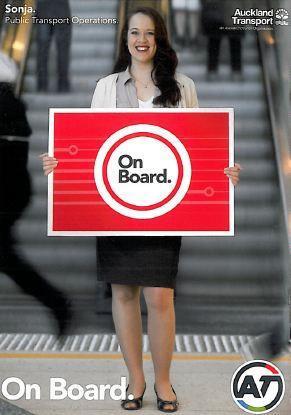
Our values describe what’s important to us – how we lead, how we work, how we behave.
They provide a shared way of doing things, including the way we work with each other and
how we do business.
We have a can do attitude
We seek win-win outcomes
We are proud of our work and workplace
We are positive ambassadors for Auckland Transport
We are a positive role model for others
We celebrate success
We give credit where credit is due
4

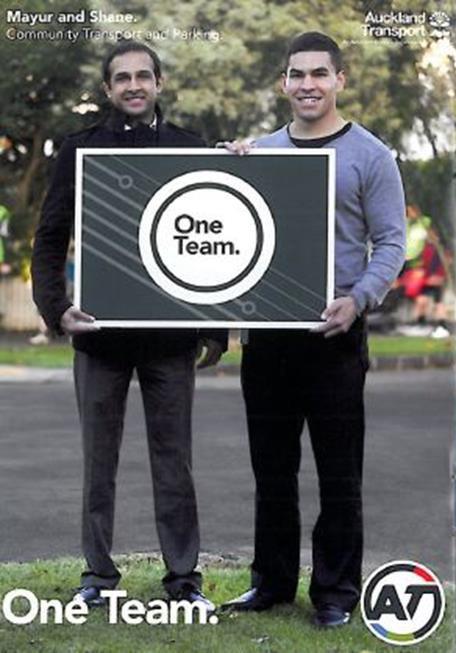
We work together as an effective team
We participate constructively in own, cross-organisation and external teams
We seek input from others
We share knowledge, resources and expertise
We help and support others
We inform others appropriately
We are supportive and encouraging
5

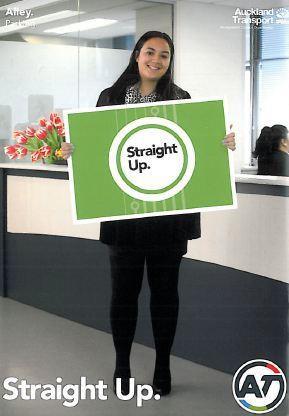
We build positive relationships
We treat others with respect
We take interest in the work and wellbeing of colleagues
We say what we mean
We are open and honest
We communicate a consistent message
We do what we say
We walk the talk
We lead by example
We can be counted on
We are trustworthy and reliable
We instill confidence
6

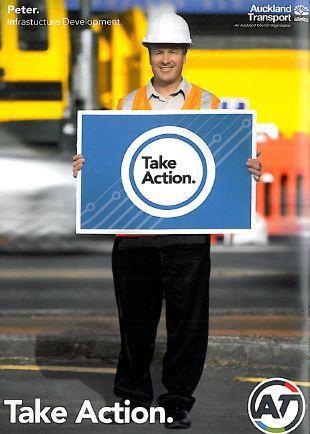
We take ownership and accountability
We are proactive
We take responsibility
We do what needs to be done
We respond to the needs and expectations of customers
We use good judgement and make decisions
We use common sense
We provide solutions
We take calculated risks
We learn from experience
We try new things
We look for ways to improve what we do and how we do it
We are open to accepting new ways of doing things
7


We keep ourselves and others safe in every way we can
We work to deliver safe, innovative and sustainable transport for a growing city.
We consider safety and wellbeing paramount
We all have a responsibility to prevent harm to ourselves, our staff, our customers,
or anyone – where we work, in whatever we do
8


 Why we do what we do….
Why we do what we do….
Your role as a Parking Officer is to ensure a fair and equitable distribution of parking services for all users.
Our main objective….
To assist the safe and effective flow of traffic by the public’s voluntary
compliance with the law achieved
through a combination of education, enforcement, engineering and research.
How we carry this out…
Transport Parking Management consists of many diverse activities which are directed toward the attainment
of its objectives. Activities such as patrolling, investigation and issuing Infringement Notices are not objectives
in themselves; rather, they are methods of achieving the real objectives of safety and traffic flow.
Other parts of our role….
Traffic Direction and Control
Civil emergencies
Special Events (Sports/Parades etc.)
Attending to road hazards
Assistance to Fire/Police/Ambulance
Removing abandoned vehicles
Assistance to motorists
Traffic Control of VIP Services
Education and Public Relations
Parking Officers are in the unique position of being able to influence, one on one, the public’s perception as to
the reason for parking compliance and thereby influencing parker behaviour.
If Parking Officers have a good understanding of the objectives and philosophy behind parking compliance and
accordingly support and endorse these objectives, they can articulate more convincingly to the public with
whom they come into contact that they are, in fact, providing a constructive service.
9

 Interesting facts about the need for enforcement……..
Interesting facts about the need for enforcement……..
Enforcement is affected by a variety of other activities relating to road safety, legislation, education, highway
and traffic engineering, driver licensing and vehicle parking/traffic inspection.
Enforcement programmes intelligently applied can bring greater compliance with regulations within a matter
of weeks.
Part of parking management is setting and providing levels of service that are appropriate to community needs
in accordance with approved parking policies.
The community’s acceptance of this service is reflected in compliance levels and indirectly, effectiveness of
enforcement.
Implementation of the Law……
Councils throughout New Zealand are bound by statute to carry out various compliance duties. Amongst them
is Parking (or more correctly) Stationary Vehicle Offences.
Councils ‘adopt’ these laws through Council meetings and resolutions. In the case of parking matters, the
requirements are:
To administer the Acts Regulations and Bylaws controlling Parking and Stationary Vehicle Offences.
To regulate street parking in those areas where Council has determined a time limit to encourage the
efficient use of the parking areas.
When carrying out your duties….
Always provide a fair and courteous service.
Administer the regulatory controls so that the rights of the public are not infringed.
Deal with people in such a way that their personal dignity is not questioned.
Elicit the cooperation and willing compliance of the public in observing the parking time limits as first principal.
Be aware of the public’s reaction and response to the implementation of any regulatory controls and
communicate these to the appropriate body.
The place of the infringement notice in enforcement is often confused. Our main objective must stay at the
forefront of your mind.
10

 Parking Officer – The Face of Auckland Transport
Parking Officer – The Face of Auckland Transport
Remember that all those who work in Parking will be judged by the approach and behaviour of one officer,
think about your colleagues before you act, they may suffer abuse or assault as a result of your previous
actions.
Your knowledge of the whereabouts of toilets, garages, cinemas, banks and medical centres etc. is important.
Keep yourself informed of activities in the city to enable you to assist readily.
The ability to provide pertinent information is positive and professional, use your
Android to assist if needs be.
Quality vs Quantity
Experience has shown that certain quantities of enforcement activity are necessary to produce desired levels
of compliance.
Closely related to the question of ‘how much’ enforcement is the question of ‘how well is it applied’.
Even a limited amount of enforcement applied where it does the most ‘good’, will achieve better results than
large quantities of enforcement indiscriminately applied.
This experience has led the principle of ‘Selective Enforcement’ as opposed to undirected, unplanned
enforcement activity.
Two patterns that have great significance in assigning personnel for enforcement purposes are
time and
location.
By utilising experience and research, it is possible to predict in advance where and when the largest proportion
of problems will occur. This permits directed patrolling that produces greater results with a smaller number of
personnel.
Another way of maximising the value of enforcement effort is to direct it towards types of traffic offences that
occur most frequently.
11

























